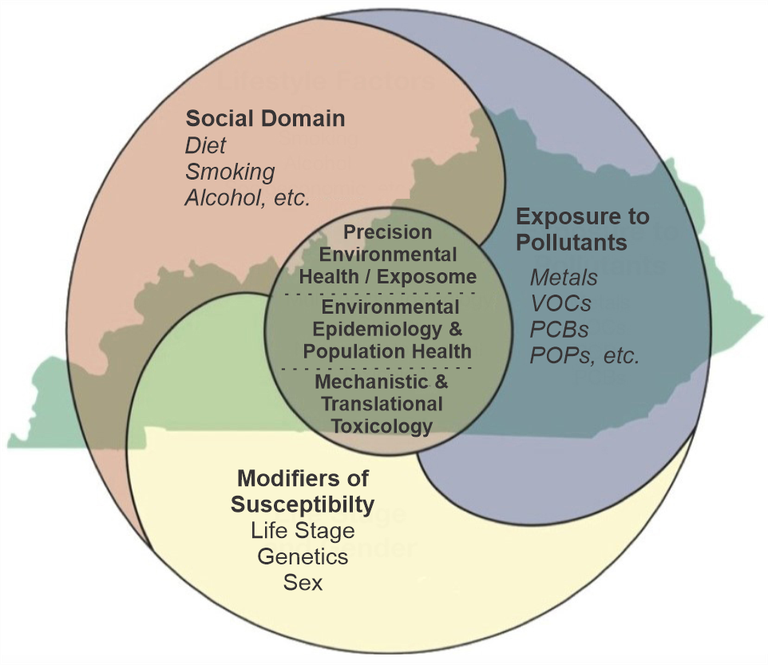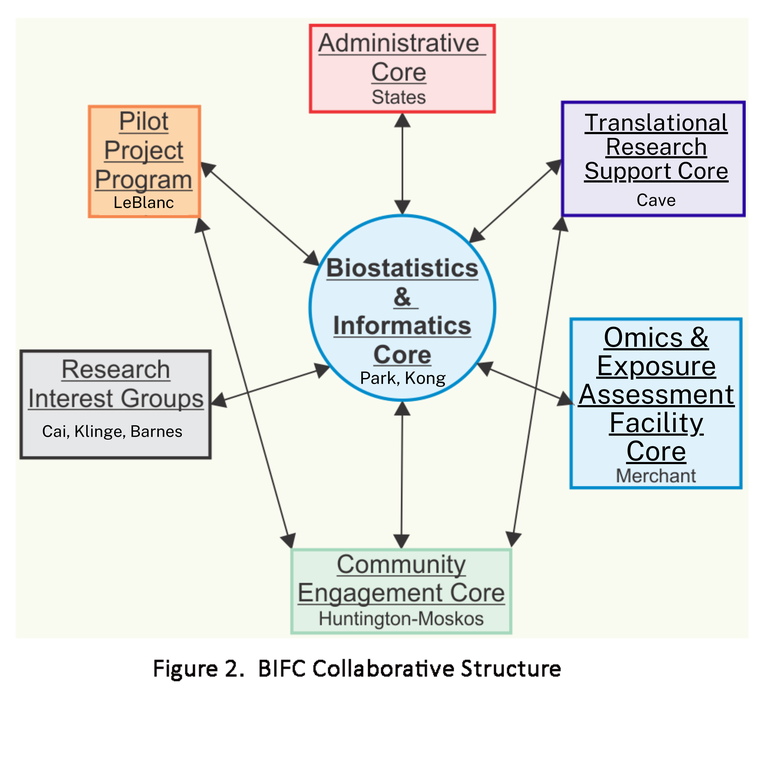Biostatistics and Informatics Facility Core
Specific Aims
The long-term objective of the University of Louisville Center for Integrated Environmental Health Sciences (CIEHS) is to build a framework that integrates studies on the interactions between combined exposure to pollutants and life style factors, in order to understand their role in human health and disease risk at various life stages and as modified by sex (Fig. 1). The Biostatistics and Informatics Facility Core (BIFC) plays a vital role in supporting CIEHS members’ research by providing state-of-the-art statistical and bioinformatics support and training to all CIEHS members. The BIFC is an essential resource for designing systematic acquisition and deposition of preclinical and clinical data as well as for providing intellectual input required for rigorous data analysis. Building the framework to integrate translational basic science research on pollution and lifestyle cofactors influencing chronic disease risk requires sophisticated statistical support. The BIFC addresses this need by using state-of-art statistical techniques as it serves CIEHS members during all phases of their studies.

The BIFC will provide seamless statistical collaboration and bioinformatics support to all investigators in different groups and Cores for the development of new environmental health research initiatives, for the design and analysis of pilot studies to develop new research initiatives, and for short-term and unanticipated research projects that are part of the funded research projects (Fig. 2). While, the BIFC encourages usage by all CIEHS members, special emphasis is placed on supporting collaborations within and among the CIEHS groups and the facility cores. Dr. Park, as Director of the BIFC, ensures the efficient and effective functioning of the resource. The assignment of BIFC members to particular projects or investigators is based primarily on the project requirements and availability of appropriate staff expertise. The BIFC sets its priorities in coordination with the CIEHS’s Internal Advisory Committee, of which Dr. Park is a member. The collaborations required for the development of new research initiatives are given a high priority to enable the timely submission of grant applications for peer reviewed funding. Priorities within other groups are set by Dr. Park, Dr. States and the other core leaders.

The specific Aims of the CIEHS BIFC are to:
- Provide state-of-the-art statistical support in design, analysis and dissemination of findings of a range of basic science, translational, clinical, population health and environmental epidemiology studies.
- Provide support for the integration of multi-omics data from both animal and human studies.
- Facilitate integration of exposure data with structural determinants of health to identify effect modifiers and mediators of the health effects of environmental exposures.
- Educate center investigators, staff and trainees in new methods related to statistics/omics approaches applicable to their research activities. Areas of special interest include, repeated measures models, measurement error, spatio-temporal methods, computational biology, statistical genetics, clinical informatics and Bayesian methods.
